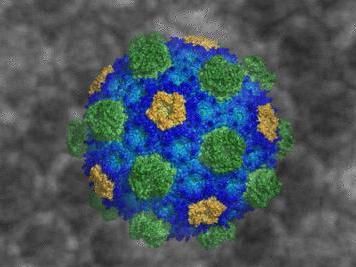The popular insect repellent deet is neurotoxic
Advertisement
The active ingredient in many insect repellents, deet, has been found to be toxic to the central nervous system. Researchers writing in BMC biology say that more investigations are urgently needed to confirm or dismiss any potential neurotoxicity to humans, especially when deet-based repellents are used in combination with other neurotoxic insecticides.
Vincent Corbel from the Institut de Recherche pour le Développement in Montpellier, and Bruno Lapied from the University of Angers, France, led a team of researchers who investigated the mode of action and toxicity of deet (N,N-Diethyl-3-methylbenzamide). Corbel said, "We've found that deet is not simply a behavior-modifying chemical but also inhibits the activity of a key central nervous system enzyme, acetycholinesterase, in both insects and mammals".
Discovered in 1953, deet is still the most common ingredient in insect repellent preparations. It is effective against a broad spectrum of medically important pests, including mosquitoes. Despite its widespread use, controversies remain concerning both the identification of its target sites at the molecular level and its mechanism of action in insects. In a series of experiments, Corbel and his colleagues found that deet inhibits the acetylcholinesterase enzyme – the same mode of action used by organophosphate and carbamate insecticides. These insecticides are often used in combination with deet, and the researchers also found that deet interacts with carbamate insecticides to increase their toxicity. Corbel concludes, "These findings question the safety of deet, particularly in combination with other chemicals, and they highlight the importance of a multidisciplinary approach to the development of safer insect repellents for use in public health".
Original publication: Vincent Corbel, Maria Stankiewicz, Cedric Pennetier, Didier Fournier, Jure Stojan, Emmanuelle Girard, Mitko Dimitrov, Jordi Molgo, Jean Marc Hougard and Bruno Lapied; "Evidence for inhibition of cholinesterases in insect and mammalian nervous systems by the insect repellent deet"; BMC Biology 2009.
























































